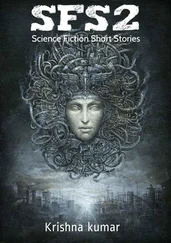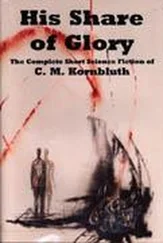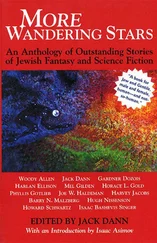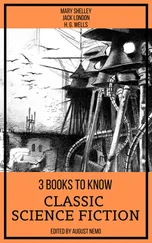W.L. Alden - 99 Classic Science-Fiction Short Stories
Здесь есть возможность читать онлайн «W.L. Alden - 99 Classic Science-Fiction Short Stories» — ознакомительный отрывок электронной книги совершенно бесплатно, а после прочтения отрывка купить полную версию. В некоторых случаях можно слушать аудио, скачать через торрент в формате fb2 и присутствует краткое содержание. ISBN: , Жанр: Языкознание, Критика, на английском языке. Описание произведения, (предисловие) а так же отзывы посетителей доступны на портале библиотеки ЛибКат.
- Название:99 Classic Science-Fiction Short Stories
- Автор:
- Жанр:
- Год:неизвестен
- ISBN:9782291063476
- Рейтинг книги:5 / 5. Голосов: 1
-
Избранное:Добавить в избранное
- Отзывы:
-
Ваша оценка:
- 100
- 1
- 2
- 3
- 4
- 5
99 Classic Science-Fiction Short Stories: краткое содержание, описание и аннотация
Предлагаем к чтению аннотацию, описание, краткое содержание или предисловие (зависит от того, что написал сам автор книги «99 Classic Science-Fiction Short Stories»). Если вы не нашли необходимую информацию о книге — напишите в комментариях, мы постараемся отыскать её.
99 Classic Science-Fiction Short Stories — читать онлайн ознакомительный отрывок
Ниже представлен текст книги, разбитый по страницам. Система сохранения места последней прочитанной страницы, позволяет с удобством читать онлайн бесплатно книгу «99 Classic Science-Fiction Short Stories», без необходимости каждый раз заново искать на чём Вы остановились. Поставьте закладку, и сможете в любой момент перейти на страницу, на которой закончили чтение.
Интервал:
Закладка:
Certain it is that out of all the superstitious cautioning, head-wagging and whispered nonsensities I obtained only two indisputable facts. The first was that no money, and no supporting battery of ten-gauge shotguns loaded with chilled shot, could induce either Cajan or darky of the region to approach within five hundred yards of that flowering wall! The second fact I shall dwell upon later.
Perhaps it would be as well, as I am only a mouthpiece in this chronicle, to relate in brief why I came to Alabama on this mission.
I am a scribbler of general fact articles, no fiction writer as was Lee Cranmer—though doubtless the confession is superfluous. Lee was my roommate during college days. I knew his family well, admiring John Corliss Cranmer even more that I admired the son and friend—and almost as much as Peggy Breede whom Lee married. Peggy liked me, but that was all. I cherish sanctified memory of her for just that much, as no other woman before or since has granted this gangling dyspeptic even a hint of joyous and sorrowful intimacy.
Work kept me to the city. Lee, on the other hand, coming of wealthy family—and, from the first, earning from his short stories and novel royalties more than I wrested from editorial coffers—needed no anchorage. He and Peggy honeymooned a four-month trip to Alaska, visited Honolulu the next winter, fished for salmon on Cain's River, New Brunswick, and generally enjoyed the outdoors at all seasons.
They kept an apartment in Wilmette, near Chicago, yet, during the few spring and fall seasons they were “home,” both preferred to rent a suite at one of the country clubs to which Lee belonged. I suppose they spent thrice or five times the amount Lee actually earned, yet for my part I only honored that the two should find such great happiness in life and still accomplish artistic triumph.
They were honest, zestful young Americans, the type—and pretty nearly the only type—two million dollars cannot spoil. John Corliss Cranmer, father of Lee, though as different from his boy as a microscope is different from a painting by Remington, was even further from being dollar-conscious. He lived in a world bounded only by the widening horizon of biological science – and his love for the two who would carry on that Cranmer name.
Many a time I used to wonder how it could be that as gentle, clean-souled and lovable a gentleman as John Corliss Cranmer could have ventured so far into scientific research without attaining small-caliber atheism. Few do. He believed both in God and humankind. To accuse him of murdering his boy and the girl wife who had come to be loved as the mother of baby Elsie – as well as blood and flesh of his own family—was a gruesome, terrible absurdity! Yes, even when John Corliss Cranmer was declared unmistakably insane!
Lacking a relative in the world, baby Elsie was given to me—and the middle-aged couple who had accompanied the three as servants about half of the known world. Elsie would be Peggy over again. I worshiped her, knowing that if my stewardship of her interests could make of her a woman of Peggy's loveliness and worth I should not have lived in vain. And at four Elsie stretched out her arms to me after a vain attempt to jerk out the bobbed tail of Lord Dick, my tolerant old Airedale—and called me “papa.”
I felt a deep-down choking…yes, those strangely long black lashes some day might droop in fun or coquetry, but now baby Elsie held a wistful, trusting seriousness in depths of ultramarine eyes—that same seriousness which only Lee had brought to Peggy.
Responsibility in one instant become double. That she might come to love me as more than foster parent was my dearest wish. Still, through selfishness I could not rob her of rightful heritage; she must know in after years. And the tale that I would tell her must not be the horrible suspicion which had been bandied about in common talk!
I went to Alabama, leaving Elsie in the competent hands of Mrs. Daniels and her husband, who had helped care for her since birth.
In my possession, prior to the trip, were the scant facts known to authorities at the time of John Corliss Cranmer's escape and disappearance. They were incredible enough.
For conducting biological research upon forms of protozoan life, John Corliss Cranmer had hit upon this region of Alabama. Near a great swamp teeming with microscopic organisms, and situated in a semitropical belt where freezing weather rarely intruded to harden the bogs, the spot seemed ideal for his purpose.
Through Mobile he could secure supplies daily by truck. The isolation suited him. With only an octoroon man to act as chef, houseman and valet for the times he entertained visitors, he brought down scientific apparatus, occupying temporary quarters in the village of Burdett's Corners while his woods house was in process of construction.
By all accounts the Lodge, as he termed it, was a substantial affair of eight or nine rooms, built of logs and planed lumber bought at Oak Grove. Lee and Peggy were expected to spend a portion of each year with him; quail, wild turkey and deer abounded, which fact made such a vacation certain to please the pair. At other times all save four rooms were closed.
This was in 1907, the year of Lee's marriage. Six years later when I came down, no sign of a house remained except certain mangled and rotting timbers projecting from viscid soil—or what seemed like soil. And a twelve-foot wall of brick had been built to enclose the house completely! One partion of this had fallen inward!
I wasted weeks of time first, interviewing officials of the police department at Mobile, the town marshals and county sheriffs of Washington and Mobile counties, and officials of the psychopathic hospital from which Cranmer made his escape.
In substance the story was one of baseless homicidal mania. Cranmer the elder had been away until late fall, attending two scientific conferences in the North, and then going abroad to compare certain of his findings with those of a Dr. Gemmler of Prague University. Unfortunately, Gemmler was assassinated by a religious fanatic shortly afterward. The fanatic voiced virulent objection to all Mendelian research as blasphemous. This was his only defense. He was hanged.
Search of Gemmler's notes and effects revealed nothing save an immense amount of laboratory data on karyokinesis —the process of chromosome arrangement occurring in first growing cells of higher animal embryos. Apparently Cranmer had hoped to develop some similarities, or point out differences between hereditary factors occurring in lower forms of life and those half-demonstrated in the cat and monkey. The authorities had found nothing that helped me. Cranmer had gone crazy; was that not sufficient explanation?
Perhaps it was for them, but not for me—and Elsie.
But to the slim basis of fact I was able to unearth:
No one wondered when a fortnight passed without appearance of any person from the Lodge. Why should anyone worry? A provision salesman in Mobile called up twice, but tailed to complete the connection. He merely shrugged. The Cranmers had gone away somewhere on a trip. In a week, a month, a year they would be back. Meanwhile he lost commissions, but what of it? He had no responsibility for those queer nuts up there in the piney-woods. Crazy? Of course! Why should any guy with millions to spend shut himself up among the Cajans and draw microscope-enlarged notebook pictures of—what the salesman called—“germs”?
A stir was aroused at the end of the fortnight, but the commotion confined itself to building circles. Twenty carloads of building brick, fifty bricklayers, and a quarter-acre of fine-meshed wire—the sort used for screening off pens of rodents and small marsupials in a zoological garden—were ordered, damn expense, hurry! by an unshaved, tattered man who identified himself with difficulty as John Corliss Cranmer.
Читать дальшеИнтервал:
Закладка:
Похожие книги на «99 Classic Science-Fiction Short Stories»
Представляем Вашему вниманию похожие книги на «99 Classic Science-Fiction Short Stories» списком для выбора. Мы отобрали схожую по названию и смыслу литературу в надежде предоставить читателям больше вариантов отыскать новые, интересные, ещё непрочитанные произведения.
Обсуждение, отзывы о книге «99 Classic Science-Fiction Short Stories» и просто собственные мнения читателей. Оставьте ваши комментарии, напишите, что Вы думаете о произведении, его смысле или главных героях. Укажите что конкретно понравилось, а что нет, и почему Вы так считаете.












